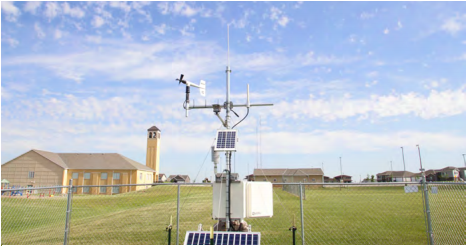
The Nebraska State Climate Office is conducting a survey of Nebraska Mesonet users through at least the end of September.
“Weather impacts us all, and we want Nebraska’s network to meet or exceed the needs of our users,” said Martha Shulski, NSCO director. “We want this survey to answer the question: ‘Why do you care about Nebraska’s ever-changing weather?’
The survey available online seeks to understand who uses the weather station data collected across the state, and as well as how they use it and the value they place on having access to the information. The survey is just 19 questions long and takes about five minutes to complete.
“With people’s input, we will be able to improve the Nebraska Mesonet program,” Shulski said. “People’s answers will help guide the direction of future products, so we know where to focus our limited resources.”
Understanding how people use weather station data, which includes air temperature, humidity, precipitation, and wind speed, among other variables, will inform the office’s long-term planning. Precipitation rates, for example, have so far been one of the most utilized observations, but the current rain gauge sensor is subject to environmental factors, such as spider webs. If desire for that rain data holds true, Nebraska Mesonet would look to install a second rain gauge at each weather station, as weather networks in neighboring states do.
The survey also will inform what data is made available on the Nebraska Mesonet website. The mesonet site currently makes available real-time data for each of its 68 stations, which are funded by 24 private, corporation or state agency investors.
“We want to make sure that, first and foremost, the entities who fund the stations are getting what they want and need out of our service. But we do have a broad spectrum of users,” Shulski said. “Weather and climate information is important for many applications, and we want to hear from all of our customers on data utility.”
Participate in the survey.
Nebraska State Climate Office
More details at: https://go.unl.edu/kaps